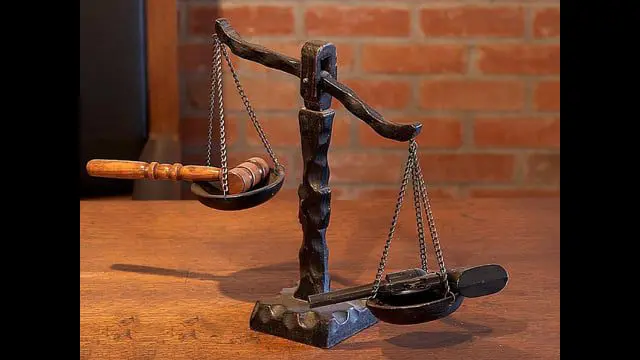Bench conferences are a critical component of the judicial process, providing a private setting where judges and attorneys can discuss sensitive issues away from the public and the jury. These conferences usually occur at the side of the judge’s bench, hence the term ‘bench conference,’ and are pivotal in ensuring that legal proceedings are conducted with fairness and respect for confidentiality.
Understanding Bench Conferences in Legal Contexts
Bench conferences primarily serve to address matters that are inappropriate for public or jury hearing. They ensure that certain legal arguments or procedural issues do not prejudice the jury’s opinion. For instance, discussions during a bench conference might revolve around the admissibility of evidence, points of law, or other matters that require delicate handling. The goal is to maintain the integrity of the trial by ensuring that all discussions that could unfairly influence the outcome are held discreetly.
Additionally, bench conferences facilitate a more efficient courtroom process. By allowing direct and private communication between the judge and the abogados, these discussions can resolve issues quickly, preventing prolonged public debates that could extend the trial unnecessarily. This efficiency is crucial in complex cases involving multiple parties or intricate legal issues where time is of the essence.
The Strategic Importance of Bench Conferences
From a strategic standpoint, bench conferences can significantly impact the direction and outcome of a trial. Attorneys often use this opportunity to argue points that might sway the judge’s decisions regarding procedural motions or evidentiary rulings. The ability to effectively communicate and persuade during these conferences can be a game-changer in the dynamics of a trial.
Moreover, these conferences allow lawyers to gauge the judge’s perspective on certain aspects of the case without exposing their full strategy to the opposing side. This insight can be invaluable as attorneys adjust their approaches and refine their arguments throughout the trial. For the judges, it’s an opportunity to clarify the positions of each side and guide the legal process with a firm understanding of the issues at hand.
Case Studies or Examples
One notable case where bench conferences played a crucial role was in a high-profile corporate litigation. During these conferences, attorneys negotiated the terms under which sensitive financial documents would be introduced, ensuring that proprietary information remained confidential. This strategic use of bench conferences prevented potential economic fallout and media misrepresentation.
Another example is a causa penal where the admissibility of a key piece of evidence was debated in a bench conference. The judge decided that the evidence was permissible, which significantly influenced the trial’s outcome, leading to a conviction. This highlights how pivotal decisions made during bench conferences can directly affect the case’s trajectory.
Comparative Analysis
Comparing bench conferences with other forms of legal discussions, such as open court arguments, reveals distinct advantages. Bench conferences offer a level of privacy that protects sensitive information, whereas open court arguments can expose confidential details to the public, potentially prejudicing the case.
In international legal systems, similar practices to bench conferences are observed but with different protocols. For instance, in the UK, discussions equivalent to bench conferences often happen in the judge’s chambers, not openly in the sala de vistas. This variation underscores the universal need for private legal discussions while highlighting procedural differences across jurisdictions.
Detailed Breakdown of Legal Consequences
The decisions made during bench conferences can have lasting legal consequences. For example, a judge’s ruling on the admissibility of evidence during a bench conference can either open the door for crucial testimony or block it, significantly shaping the trial’s direction.
Furthermore, the ethical handling of information discussed in bench conferences can affect the legal profession’s integrity. If a breach occurs, it could lead to sanctions against the attorney, damage to the client’s case, or even broader implications for legal practice standards.
Technology and Tools
Recent advancements in legal technology have enhanced the way bench conferences are conducted. Digital tools such as encrypted real-time transcription services ensure that everything said during these conferences is accurately recorded and securely stored, allowing for better accountability and review.
Additionally, virtual reality (VR) technology is beginning to be explored for remote bench conferences, where participants can engage in a simulated courtroom environment from different locations. This technology could revolutionize how sensitive discussions are held, providing both accessibility and confidentiality.
FAQ Section
Q: What is discussed during a bench conference? A: Legal strategies, admissibility of evidence, procedural issues, and any content that could prejudice the jury’s decision are typical topics.
Q: Can the public access the details of a bench conference? A: No, the details of bench conferences are generally kept confidential to protect the integrity of the case and the privacy of the parties involved.
Consideraciones éticas
Ethical considerations in bench conferences revolve around confidentiality and the fair handling of information. Attorneys and judges must ensure that the private nature of the discussions does not compromise the trial’s fairness or the legal rights of those involved.
Judges, in particular, must remain impartial and not allow the private discussions to influence their judgment unduly. This adherence to ethical standards is crucial for maintaining public trust in the legal system.
Impact on Legal Outcomes
The influence of bench conferences extends beyond the courtroom dynamics; they can also have a profound impact on the outcome of a trial. Decisions made during these discussions can determine the course of the trial, influencing everything from the presentation of pruebas to the final arguments. For legal practitioners, mastering the art of the bench conference is not just about understanding legal theories but also about applying them tactically within the real-world context of a courtroom.
Effective participation in bench conferences requires meticulous preparation and an in-depth understanding of both the case and the applicable law. Attorneys must be ready to present their arguments concisely and persuasively, backed by solid legal precedents and clear factual bases.
Conclusión
Bench conferences play an indispensable role in the administration of justice. They are not merely procedural formalities but are crucial forums for discussing and resolving key legal issues that affect the trial’s integrity and efficiency. As such, understanding and effectively engaging in bench conferences are essential skills for legal professionals, impacting not only the immediate case at hand but also broader prácticas jurídicas and principles.









